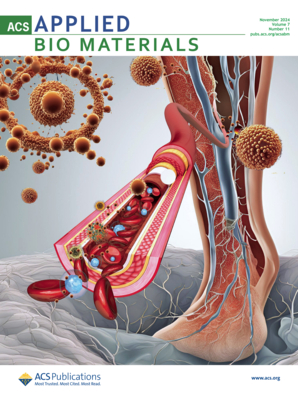Itaconic Acid Oligomers for Electrostatically Spun Degradable Implantable Biobased Polyurethane
Abstract
Developing implantable medical materials with excellent comprehensive performance has important practical applications. Cardiovascular and bile ducts are characterized by various forms of diseases and high morbidity and mortality. One of the effective treatment modalities for such diseases is replacement surgery. Since commercially available materials for tubular organ sites are in short supply and the number of autologous and natural grafts is limited, the study of implantable materials that can be prepared in tubes is of great significance. This study reports on an implantable medical polyurethane material (IBP-PU) with a binary soft segment structure prepared by microwave synthesis. The material exhibits excellent mechanical properties (with a mechanical strength of 33.00 ± 4.02 MPa and a strain at break of 519.93 ± 53.44%), and stable thermomechanical properties (Td5% > 250 °C). The excellent biocompatibility of IBP-PU (hemolysis rate = 2.55% and cell survival on the fifth day over 100%, etc.) makes it suitable for implantable medical applications. Its appropriate degradation rate allows for slow in vivo degradation with the generation of tissues, and the degradation products are nontoxic and do not require removal by secondary surgery. Additionally, the material has been successfully prepared using electrostatic spinning technology, resulting in a 5 mm caliber. It is significant for small-caliber cardiovascular, bile duct, and other in vivo tubular grafts.





